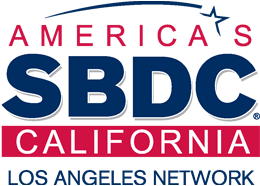If you’re starting a business, you may be wondering how to legally structure it. Should you incorporate, become an LLC, or operate as a sole proprietor?
Over 70 percent of U.S. businesses are owned and operated by sole proprietors or sole traders.
But what does being a sole proprietor involve and is it the right structure for your small business? Here’s what you need to know about the advantages and disadvantages of being a sole proprietor.
What is a Sole Proprietor?
A sole proprietorship is basically an unincorporated business owned and run by one individual (no partners are involved), with no distinction between the business and its owner. As a sole proprietor, you are entitled to all profits and are responsible for all your business’s debts, losses and liabilities.
A sole proprietorship is the easiest business structure to form (you only need to get a license or permit and register your business with your local government) (hence its popularity). It is also a simple structure to maintain with few forms and little business administration needed. Many freelancers, consultants and independent contractors operate as sole proprietors for ease and convenience.
SBA’s Sole Proprietor Guide offers more details about the process of starting a business as a sole proprietor and the steps you’ll need to follow.
What Are the Advantages of Being a Sole Proprietor?
As mentioned above, the ease of starting and operating a sole proprietorship is one of the reasons this business structure is hugely popular. Also, sole proprietors are relatively unencumbered by government regulations and can run their business autonomously without the need to report to partners, shareholders and board members. You control all your own decisions and the money you make.
Sole proprietors have the benefit of reporting tax on any income earned through their own personal tax return, rather than filing separately as a business – which can save time and hassle. You also won’t need to prepare a balance sheet for your company.
Sole proprietors also have a lot of flexibility when it comes to their careers. You can easily close your business without too much bureaucracy, or work on a full or part-time basis for another employer without worrying about answering to anyone about your own business affairs (aside from your clients, of course) – another reason this is a popular option for freelancers, many of whom hold down two jobs!
What About the Disadvantages?
One of the reasons many new business owners seek to incorporate instead of being a sole proprietor is the liability issue.
You may not think now that you need protection against liability, but what if a client holds you in breach of contract or threatens to sue you? Can you afford to put your personal assets at risk to satisfy any claims against your business? As a sole proprietor, there is no legal distinction between the owner and the business. This means that you are personally liable for all business losses and debts. Business incorporation can limit your liability as a business owner, essentially putting your personal assets off limits if anyone brings a judgment against you. So sole proprietors are inherently exposed to risk that incorporating as a corporation or limited liability company can help alleviate.
Other disadvantages can potentially impact your bottom line and growth plans. For example, banks typically require that businesses incorporate before they’ll lend them money, leaving you to rely on savings, credit cards and other sources of capital. Then there’s the perception issue – being an incorporated business can give you a more professional appearance to potential clients.
Finally, because you aren’t required to produce financial statements or a balance sheet, your financial controls might not be as sharp as the need to be and this could be detrimental in the long term.
The Bottom Line
If you are starting a business, operating it as a sole proprietor can afford many benefits:
- Ease of start-up (from an administrative perspective)
- Lower start-up costs (incorporation involves forms, fees and sometimes legal advice)
- Quicker and simpler tax preparation
- Autonomy of business decisions and control of profits
Then again, it’s important to consider the downsides.
- Liability – If you run a business that could expose you to risk in the form of debt or lawsuits (e.g., industries such as a child care or a food service business), then operating as a sole proprietor could leave your personal assets vulnerable.
- Raising capital can be hard
- Lack of financial controls
- Lack of professionalism
If you still have questions, there are a number of counseling resources in your community that can help, including Small Business Development Centers. Find them here.
Additional Resources
For a complete guide to your available business structure options and how to set them up refer to SBA’s Choosing a Business Structure guide.
If you think incorporation might be right for your small business, check out this recent blog: Top 10 Questions about Small Business Incorporation Answered.





